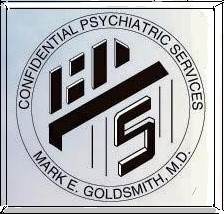Schizophrenia
Schizophrenia is a serious mental illness that interferes with a person’s ability to think clearly, manage emotions, make decisions and relate to others. It is a complex, long-term medical illness, affecting about 1% of Americans. Although schizophrenia can occur at any age, the average age of onset tends to be in the late teens to the early 20s for men, and the late 20s to early 30s for women. It is uncommon for schizophrenia to be diagnosed in a person younger than 12 or older than 40. It is possible to live well with schizophrenia.
Symptoms
It can be difficult to diagnose schizophrenia in teens. This is because the first signs can include a change of friends, a drop in grades, sleep problems, and irritability—common and nonspecific adolescent behavior. Other factors include isolating oneself and withdrawing from others, an increase in unusual thoughts and suspicions, and a family history of psychosis. In young people who develop schizophrenia, this stage of the disorder is called the “prodromal” period.
With any condition, it’s essential to get a comprehensive medical evaluation in order to obtain the best diagnosis. For a diagnosis of schizophrenia, some of the following symptoms are present in the context of reduced functioning for a least 6 months:
Hallucinations. These include a person hearing voices, seeing things, or smelling things others can’t perceive. The hallucination is very real to the person experiencing it, and it may be very confusing for a loved one to witness. The voices in the hallucination can be critical or threatening. Voices may involve people that are known or unknown to the person hearing them.
Delusions. These are false beliefs that don’t change even when the person who holds them is presented with new ideas or facts. People who have delusions often also have problems concentrating, confused thinking, or the sense that their thoughts are blocked.
Negative symptoms are ones that diminish a person’s abilities.
Cognitive issues/disorganized thinking. People with the cognitive symptoms of schizophrenia often struggle to remember things, organize their thoughts or complete tasks. Commonly, people with schizophrenia have anosognosia or “lack of insight.” This means the person is unaware that he has the illness, which can make treating or working with him much more challenging.
To learn more about Schizophrenia, visit NAMI.org.

